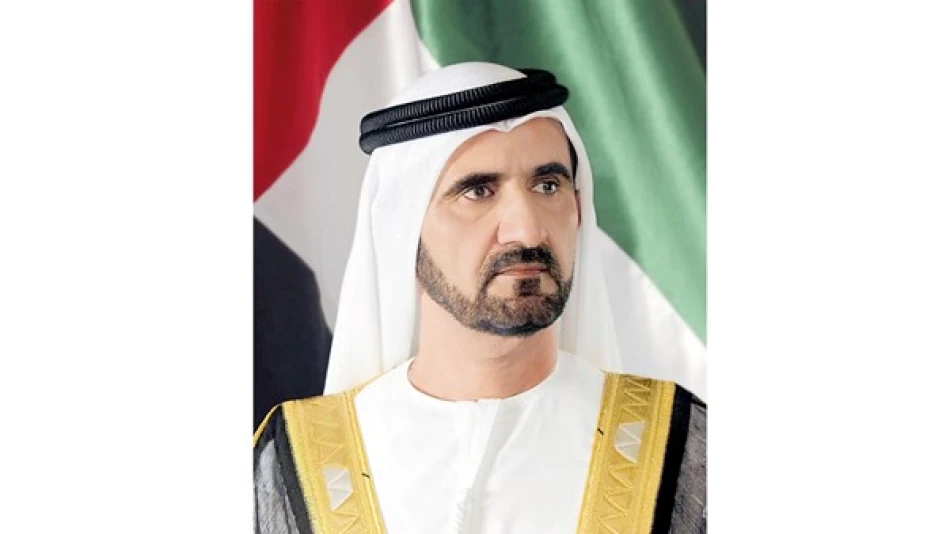
Dubai Appoints Rashid Al Matroushi as Civil Defense Chief in Decree by Mohammed bin Rashid
Dubai Reshuffles Civil Defense Leadership as Part of Major Military Restructuring
Dubai's ruler Sheikh Mohammed bin Rashid Al Maktoum has appointed new leadership for the emirate's civil defense forces while simultaneously promoting over 6,000 military personnel across multiple security agencies. The moves signal a significant organizational overhaul aimed at strengthening Dubai's emergency response capabilities and military readiness as the emirate positions itself as a global hub for business and tourism.
New Command Structure Takes Shape
Major General Rashid Thani Al Matrooshi has been named as the new Commander-in-Chief of Dubai Civil Defense, while Major General Jamal Adhed Al Muhairi will serve as his deputy. The appointments, formalized through Decree No. 34 and Decision No. 26 of 2025, take immediate effect and represent a fresh leadership approach to managing Dubai's emergency response infrastructure.
The civil defense restructuring comes at a critical time for Dubai, which has experienced rapid urban expansion and increased extreme weather events. The emirate's civil defense forces play a crucial role in managing everything from high-rise building emergencies to flood response during the region's increasingly intense rainfall seasons.
Mass Military Promotions Reflect Broader Security Investment
The leadership changes coincide with promotions for 6,247 military personnel across four key security agencies: State Security, Dubai Police, the General Directorate of Residency and Foreigners Affairs, and Civil Defense. This represents one of the largest single promotion cycles in Dubai's recent history, suggesting substantial investment in human capital within the security sector.
Strategic Implications for Regional Security
The timing of these appointments aligns with broader regional security considerations. As the UAE continues to position itself as a stable business hub in an often volatile region, maintaining robust internal security and emergency response capabilities becomes increasingly important for investor confidence and international partnerships.
Dubai's approach mirrors similar security sector investments seen in Singapore and other city-states that balance openness to international business with comprehensive internal security measures. The emirate's ability to maintain this balance has been crucial to its success as a global financial and logistics center.
Modernization Meets Growing Challenges
The restructuring reflects Dubai's recognition that traditional security models must evolve to address contemporary challenges. Climate change has brought more frequent extreme weather events to the region, while the emirate's growing population and increasingly complex urban infrastructure require more sophisticated emergency management capabilities.
For international businesses operating in Dubai, these changes signal continued government commitment to maintaining the stable, secure environment that has made the emirate attractive to multinational corporations and financial institutions. The promotion of thousands of security personnel also suggests significant budget allocation toward maintaining this stability.
Impact on Dubai's Global Positioning
These appointments come as Dubai prepares to host major international events and continues expanding its role as a regional headquarters for global companies. Effective civil defense and security operations are essential infrastructure for maintaining the emirate's reputation as a reliable business destination, particularly as companies increasingly factor climate resilience and emergency preparedness into their location decisions.
The scale of the military promotions also indicates Dubai's commitment to retaining experienced personnel in an increasingly competitive regional job market, where skilled security professionals are in high demand across Gulf states pursuing similar modernization and expansion strategies.
Most Viewed News

 Layla Al Mansoori
Layla Al Mansoori






